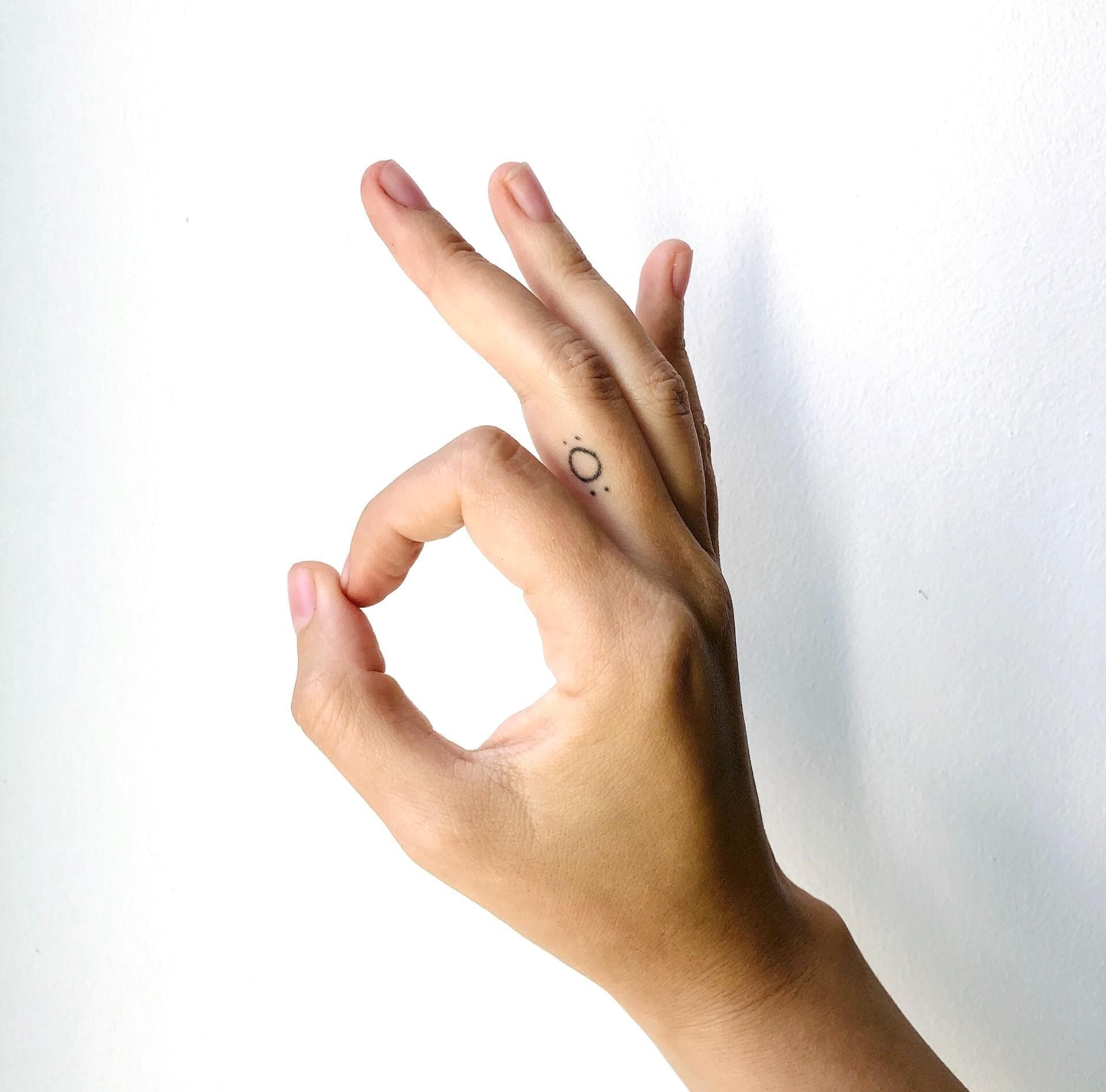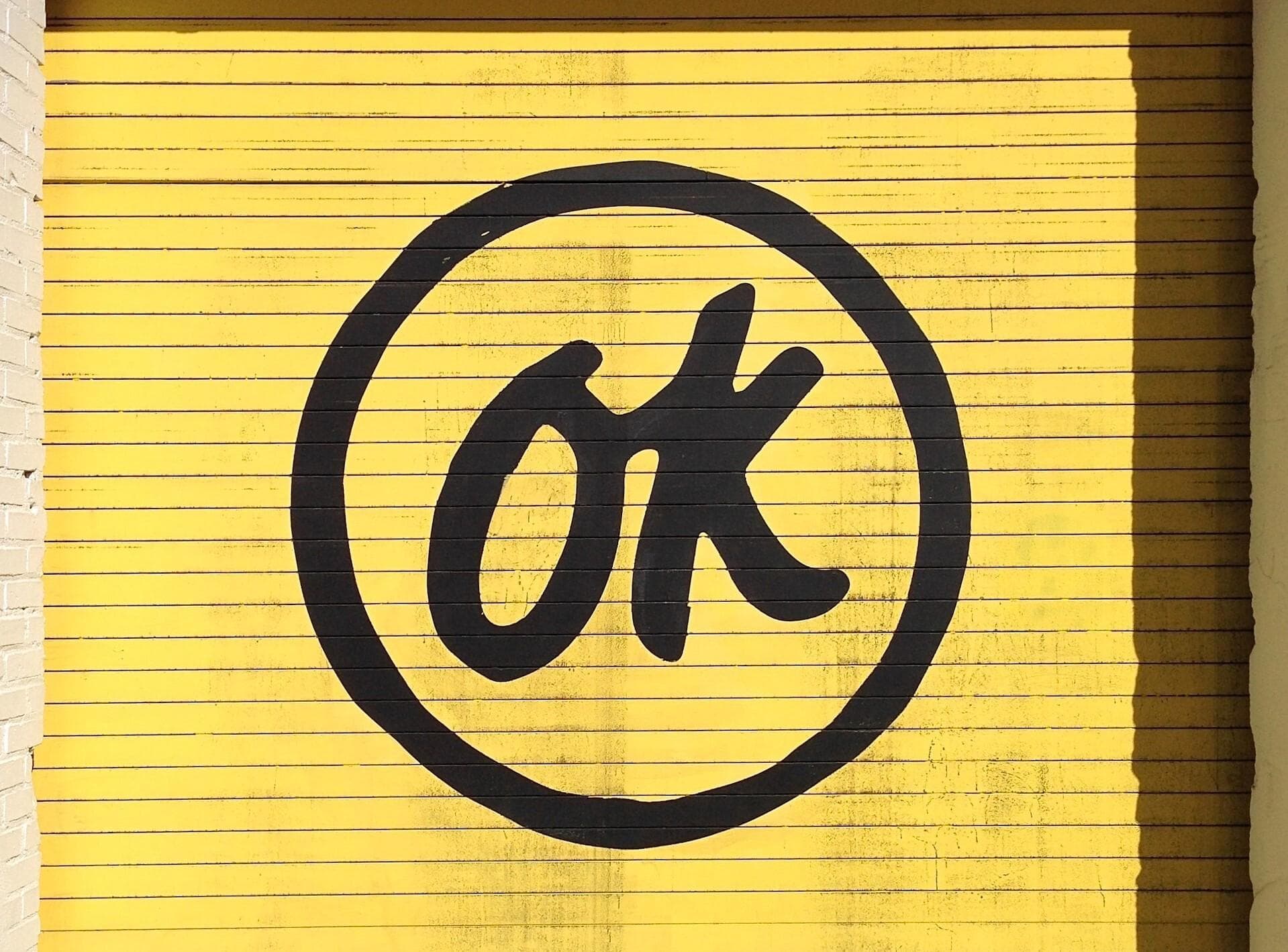Ok, so we're going to learn how to say "ok" - ok?
While being may be the easiest word ever, "OK" is one of the most important words in American English, and it is growing in popularity in other dialects of English. There are a few different phrases that work as a Chinese translation for the English "ok".
好的 (hǎo de) / 行 (xíng) / 没问题 (méi wèn tí)

好的 might be the closest to the standard simple ok in English. It basically means "ok (I can do that)". It is a very common and casual word to use.
There are in fact multiple other Chinese expressions that work similarly to 好的, including 行 and 没问题, they can be both translated as "sure/alright/no problem (I can do that)", and 没问题 literally means "without question"!
But pay attention to the fact that 行 can be said in a curt or perfunctory way.
好 / 行 + modal particle

There are also cases when people add a modal particle to 好 / 行, such as 吧 (ba),啊 (a),呀 (ya), etc., to express "ok". Adding different modal particles will modify the tone in different ways.
Adding 吧 will make it sound reluctant and perfunctory. People may use 好吧 or 行吧 after someone takes time to convince them to agree to something, and they finally agree to it while being somewhat reluctant and respond with 好吧 / 行吧, which can be translated to "fine (I will do that)".
On the contrary, adding 啊 or 呀 will make the tone very strong, either in a positive or negative way.
When they're used in a positive way, 好啊(呀) / 行啊(呀) will express strong agreement. For example, if a friend suggests you watch a movie together, and you're very excited about it, you can respond with 好啊(呀) / 行啊(呀), which means "okay/yeah! (Let's do it!)"
But when they're used in a negative way, 好啊(呀) / 行啊(呀) will come with an angry tone. For example, for some reason, you decide to drop out of college, and your parents are unhappy about the decision, but cannot change your mind, they can respond with:
"好啊(呀) / 行啊(呀),你爱干什么干什么,我不管你了!"
"Alright/Okay/Fine! Do whatever you want, I will not care about you anymore!"
As you can imagine, that must sound very angry. Of course, this is an extreme example, make sure you don't drop out of college for no good reason!
可以 (kě yǐ)

The direct translation for 可以 is "can". When you use it to express "ok", it is similar to 行/没问题, but the tone is curter for 可以.
For example, someone asks "Do you mind if I take the seat next to you?" You can answer with "可以", meaning "yes/ok", but it basically comes with no emotion.
Sometimes people will add 的 (de) to 可以 to modify the tone, making it softer. For the same example above, if you answer "可以的", it still means "yes/ok/sure", but it also suggests that you're ok with them taking the seat, expressing "go ahead" without explicitly saying it.
嗯 (en/ǹg)

This word is sort of like "um" in English, you CAN use it while you're still composing your answer by "嗯……" just like "um…". But the more common use for 嗯 in Chinese is to express agreement, which is like "ok" or "yeah".
The main difference between 嗯 and the words introduced above is that 嗯 is more ambiguous, and it's generally not used alone in order to make yourself clear.
Consider the scenario below:
Wife: "老公,你能帮我扫地吗?" ("Darling, can you help me sweep the floor please?")
Husband: "嗯,好的。" ("Ok, I can.")
Here, 嗯 is used and followed by 好的, one of the words we discussed above. By adding 好的, the husband makes it clear that he agrees. He can just say 嗯, but that would come with a curt tone, and can imply that he's reluctant to do so (not necessarily, this is a part that personality can play a role in).
On the other hand, you can chain multiple words we mentioned above to finish the sentence. For example, you can also respond with:
"嗯,好的,没问题"
"Oh, ok no problem!"
And this will come off as very polite and confirmative.
A good rule to know is, for words including 嗯,行,好(的), and 没问题, you can chain these as you wish if you want to be confirmative (generally start with 嗯 or 行, and end with 好的 / 没问题).
哦 (o)
Another word similar to 嗯 is 哦. This word sounds like "oh" and is indeed used similarly. The only difference is that 哦 doesn't have to come with any emotion or tone, while "oh" usually does. Therefore, it's better to translate 哦 to "ok" rather than "oh".
There is another word 噢 (o) that may be the better counterpart of "oh" in Chinese. Note that oftentimes 哦 and 噢 are interchangeable, with 哦 being the more frequently used one.
People generally respond with 哦 when they are told things and they want to express that they've received the message. Here are two examples that illustrate the usage of 哦.
Example 1:
Mother: "快去写作业!" ("Go do homework!")
Son: "哦,知道了。" ("Ok, got it.")
Example 2:
Your friend: "我们已经帮你订餐了。" ("We've already ordered your food.")
You: "哦,好的,谢谢!" ("Ok/Oh, great, thanks!")
还行 (hái xíng) / 还可以 (hái kě yǐ) / 一般 (yī bān)
We know that in English when you say "it's ok", you may mean "it's good/fine" or "just so so", and this is when you would say "还行", "还可以" or "一般".
"还行" and "还可以" are similar to each other, they basically mean "moderately good".
For example:
Person A: "你怎么样?" ("How are you?")
Person B: "还行。" or "还可以。" ("I'm fine/ok")
"一般" on the other hand, is better translated as "just so so" (Note that it has other meanings too, here we only discuss this one meaning).
For example:
Person A: "味道怎么样?" ("How does it taste?")
Person B: "一般。" ("Just so so.")
Recall that we can add modal particles to modify the tone, 吧 is a very common one to add to the end of 还行/还可以 and 一般. By doing so, you will make it even clearer that you're expressing a moderate or ordinary feeling.
Of course, you can also add 啊/呀 (generally only to 还行/还可以). In this case, 还行啊/还可以啊 would convey the meaning of "Oh, it's actually not bad!", which in effect alters the meaning.
所以呢?(suǒ yǐ ne?)

Sometimes you would respond with "ok?" when someone said something that is confusing or ambiguous, or you're uncertain about what they're trying to say. In this case, you may say "所以呢?" in Chinese, which is translated to "so?" or "so what?"
The takeaway here is that you should not underestimate the simplest of simple words "ok", which can contain an absolute plethora of meanings. Depending on the situation, the tone you use and sometimes even your personality, you can say a lot with "ok", and choose wisely which Chinese phrase to use!
But that's not all of it! There is also an article on how to say "yes" in Chinese, which offers more phrases and options to use, and to best express yourself for our daily life conversations!